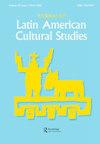Zama and the Politics of Contamination: from Di Benedetto’s Novel to Martel’s Film
IF 0.3
4区 社会学
Q4 CULTURAL STUDIES
引用次数: 0
Abstract
This article examines Lucrecia Martel’s Zama (2017) and her transposition from Antonio Di Benedetto’s book (1956) of the same name. I argue that Martel’s film is able to “de-visualise” the mobility and visuality of Di Benedetto’s text by pushing his elusive images towards higher levels of cinematic abstraction. More broadly, I claim that the film Zama is exemplary of what Martel calls “contamination” – that is, a term the ancient Romans employed to incorporate and transform previous Greek materials into their own cultural texts, which stands here as the filmmaker’s method in rearranging the novel. In this way, the process of de-visualisation which I borrow from Jacques Rancière’s work will be played out in relation to Martel’s politics of script adaptation and her re-imagination of the literary Zama.扎玛与污染政治:从迪·贝内代托的小说到马特尔的电影
本文考察了Lucrecia Martel的《Zama》(2017)及其对安东尼奥·迪·贝内代托同名小说(1956)的改编。我认为,马特尔的电影能够“去视觉化”迪·贝内代托文本的流动性和视觉性,将他难以捉摸的图像推向更高层次的电影抽象。更广泛地说,我认为电影《扎玛》是马特尔所说的“污染”的典范——这是古罗马人用来将之前的希腊材料整合并转化为他们自己的文化文本的一个术语,这是电影制作人重新安排小说的方法。通过这种方式,我从Jacques ranci的作品中借用的去视觉化的过程将与Martel的剧本改编政治和她对文学Zama的重新想象有关。
本文章由计算机程序翻译,如有差异,请以英文原文为准。
求助全文
约1分钟内获得全文
求助全文

 求助内容:
求助内容: 应助结果提醒方式:
应助结果提醒方式:


